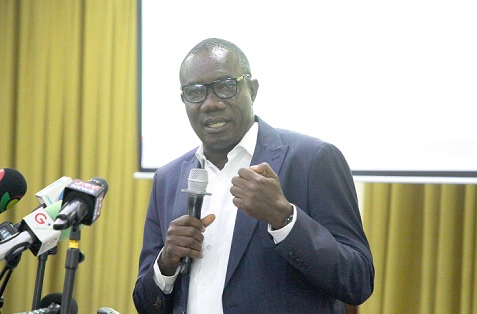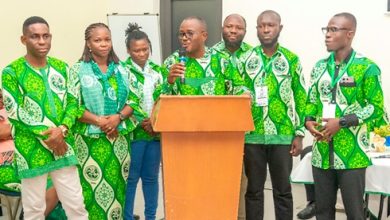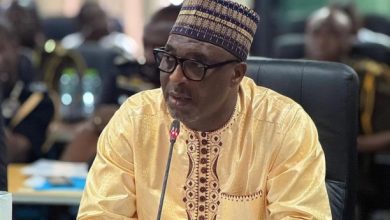Utilities propose increments for uninterrupted power, water supply

Three utility providers have submitted a proposal to the Public Utilities Regulatory Commission (PURC) for varying rates of increments in tariffs and charges.
The Electricity Company of Ghana (ECG) is demanding 239 per cent increase for 2025, the Northern Electricity Distribution Company (NEDCo), has proposed an increase of 174.10 per cent and the Ghana Water Limited (GWL), has tabled 280 per cent, all the requests necessary to avert financial difficulties and ensure reliable power and water supply.
NEDCo operates in the Northern Sector, representing 64 per cent of the land area of Ghana.
The company, predominantly, operates in eight regions (five regions of the North, Bono, Bono East and Ahafo regions) and parts of Ashanti, Oti and Western North regions.
GWL is responsible for water production and distribution in urban areas.
In general, ECG is proposing an average increment in tariffs from 19.08Gp per kilowatt hour (kWh) to 61.80Gp/kWh, equivalent to 224 per cent during the tariff period of 2025 to 2029.
NEDCo, on the other hand, proposed GH¢1.54789/kWh for 2025, up from 56.47Gp/kWh of December last year, representing 174.1 per cent.
The utilities justified their requests at a PURC stakeholder engagement in Accra yesterday (September 9) on submitted utility tariffs proposals for the 2025-2029 multi-year tariff review.
Present was the Presidential Staffer and Head of the Utility Review Hearing Committee, Nana Yaa Jantuah.
The engagement was to brief stakeholders on proposals received from the regulated utilities, which also included the Volta River Authority (VRA), the Ghana Grid Company Limited (GRIDCo), the Ghana National Gas Company (GNGC) and the Enclave Power Company (EPC) regarding a review of their tariffs.
The General Manager in charge of Financial Plan at ECG, Moses Okley, stated that ECG tabled the proposed tariffs for 2025-2029, keeping in mind the financial viability, operational efficiency and sustainable service delivery required to meet the dynamic demands of the energy sector of the country.
He said the proposed adjustments were to address the inherent challenges ECG faced, including the need for cost-reflective tariffs and addressing systemic challenges.
Mr Okley said the proposal outlined comprehensive strategies to overcome key challenges such as illegal connections, technical losses and financial constraints. He said it also took into consideration adapting to macroeconomic factors such as inflation, foreign exchange fluctuations, and interest rates, which critically influenced the cost components of the tariff structure.
He said ECG’s commitment to investing in infrastructure, digital transformation, and human resources development was pivotal to achieving the vision of being a competitive, sustainable, innovative, and customer-centric energy service provider.
“We urge the commission and all stakeholders to consider this proposal favourably,” ECG’s Financial Plan General Manager added.
NEDCo’s position
The Commercial Director of NEDCo, Hashim Iddrisu, explained that the company had a customer population of about 1.29 million last year, with 83.55 per cent being residential, 16.44 per cent non-residential, and 0.01 per cent Special Load Tariff (SLT) customers.
He said 39 per cent (508,424) were lifeline customers who paid a heavily subsidised rate, resulting in losses for each kilowat hour of power sold.
He said the reduction of the lifeline band from 50kWh to 30kWh had not solved the revenue shortfall, leading to recommendations for scrapping the band altogether.
Challenges also arose from the public lighting levy being reduced from five per cent to three per cent, which covered less than 20 per cent of consumption for public lighting.
To address the financial gaps, Mr Iddrisu urged the PURC to approve a specific tariff for street and public lighting to ensure sustainability.
GWL
In its presentation, a representative of GWL stated that the company was seeking a 280 per cent increment to offer a reliable water supply.
The audience at the event.
“We are only asking for a 280 per cent increase in the price of our request. So, we are not asking too much, but at least this 280 per cent covers production, distribution, transmission, and all other activities.
“The reason for the adjustment is that the current tariff is inadequate, we need money to pay our loans, and pollution of our water bodies”.
The company said it had an expenditure of about GH¢447 million, in addition to $1.5 million and €8.5 million for various activities, including the replacement of soft starters, installation and rehabilitation of pumps, refurbishment of high lift pumps, replacement of transformers and switch gears, the provision of maintenance on dredges, supply and the installation of chemical dosing pumps and sterilisers, which had resulted from water pollution.
To improve distribution, GWL recently spent GH¢82 million on a 324-kilometre pipeline extension and improvement, among others.
GRIDCo’s transmission
The acting Director in charge of Corporate Strategy at GRIDCo, Samuel Kow Acquah, said the company was seeking approval to more than double its transmission service tariff from the current 5.64Gp/kWh to 12.97Gp/kWh in 2025.
He said the request represented a 130 per cent increase.
Mr Acquah explained that the existing tariff was inadequate and stressed the need for a cost-reflective rate to support its operations.
He said for the 2026–2030 review period, the utility company was projecting tariffs to range between 13.04Gp/kWh and 13.44Gp/kWh, excluding statutory levies.



